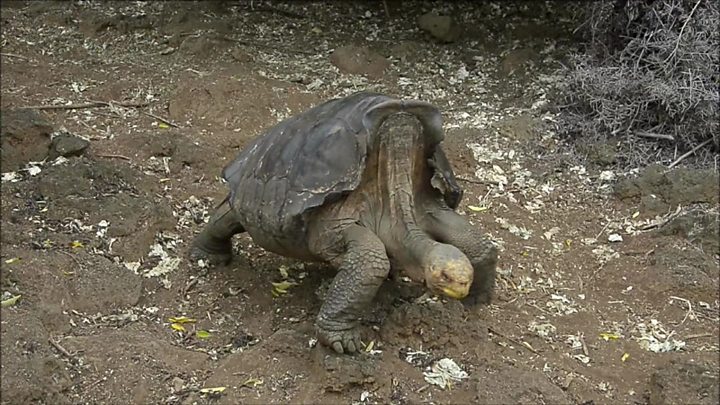This website uses cookies so that we can provide you with the best user experience possible. Cookie information is stored in your browser and performs functions such as recognising you when you return to our website and helping our team to understand which sections of the website you find most interesting and useful.

Media playback is unsupported on your device
A giant tortoise whose legendary libido has been credited with saving his species from extinction is to return to the wild on the Galápagos Islands.
Diego was among 14 male tortoises selected to take part in a breeding programme on Santa Cruz Island.
The programme has been a success, producing more than 2,000 giant tortoises since it began in the 1960s.
Diego's sex drive was said to be one of the main reasons.
The 100-year-old tortoise has fathered hundreds of progeny, around 800 by some estimates.
The programme has now finished, and Diego will be returned to his native island of Española in March, the Galápagos National Parks service (PNG) said.
He will join a 1,800-strong tortoise population, at least 40% of which park rangers believe he has fathered.
"He's contributed a large percentage to the lineage that we are returning to Española," Jorge Carrion, the park's director, told AFP news agency.
"There's a feeling of happiness to have the possibility of returning that tortoise to his natural state."
The park service believes Diego was taken from the Galápagos 80 years ago by a scientific expedition.
Around 50 years ago, there were only two males and 12 females of Diego's species alive on Espanola.
To save his species, Chelonoidis hoodensis, Diego was brought in from California's San Diego Zoo.
Diego is currently in quarantine before his triumphant return to Española, considered one of the oldest parts of the Galápagos.
The Galápagos Islands, 906km (563 miles) west of continental Ecuador, are a Unesco World Heritage site renowned worldwide for their unique array of plants and wildlife.
The indigenous species found on the Galápagos, including iguanas and tortoises, played a key role in the development of Charles Darwin's Theory of Evolution.
Tourists across the globe travel there to see its biodiversity.



 Africana55 Radio
Africana55 Radio 
